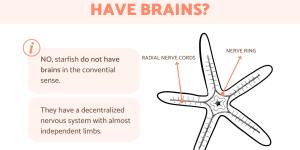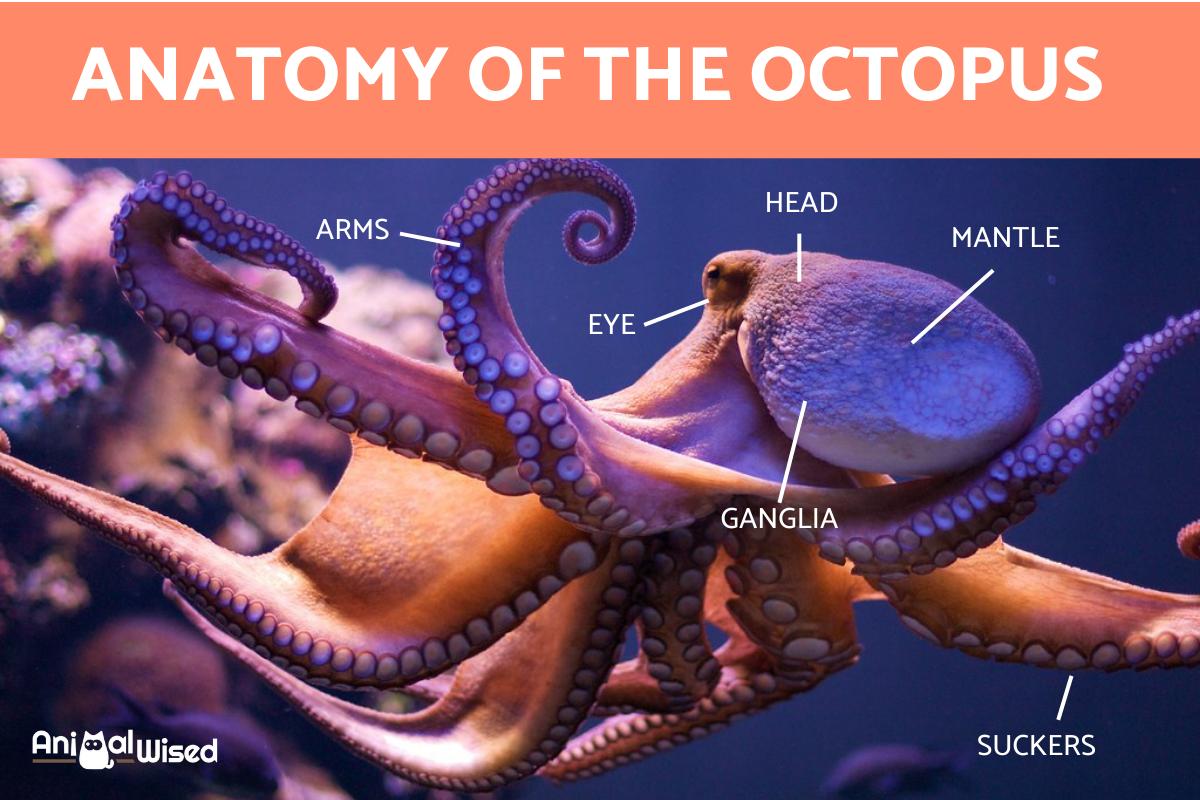How Many Brains Does an Octopus Have?


Octopuses are members of the molluscan phylum, class Cephalopoda, and the order Octopoda. What makes them particularly interesting is that they possess unique characteristics that set them apart not only from other invertebrates, but also from other mollusks. Their remarkable abilities have captured the attention of scientists and the public alike, including their ability to manipulate objects, recognize individuals and locations, cover their burrows with rocks, and camouflage themselves in stunning ways within the marine ecosystem. These behaviors are a testament to the intelligence of these creatures, which has led to speculation about the number of brains they possess.
In this article from AnimalWised, we will explore the fascinating topic of octopus brains and shed light on how many of these brains they actually have.
The anatomy of the octopus
Octopuses come in a variety of sizes, with some individuals measuring only 2 cm in length and weighing less than 1 g, while others are much larger, such as the famous giant octopus of the Pacific. Reports suggest that there have been specimens of this species that weighed as much as 275 kg.
The octopus body is composed of a system of convergences around the head, with several important parts that play key roles in the creature's survival. These include:
- Mantle: the muscular and hollow structure that fuses with the back of the octopus's head and houses its vital organs such as the viscera, gills, and ink sac used for defense.
- Siphon: the tube-like structure that connects the mantle cavity with the outside environment, and through which the octopus can expel water to create momentum for locomotion.
- Arms: octopuses have eight flexible and prehensile arms with sticky suckers that allow them to cling to any surface. These arms also have chemoreceptors that aid in food acquisition and foraging.
- Eyes: octopuses have well-developed eyes with a structure similar to that of mammals, which play a crucial role in the animal's survival.
- Brain: the octopus brain is part of a complex nervous system that coordinates the creature's behavior, movements, and reactions.
- Beak: the beak-shaped mouth is made of chitin and is very hard. It is used to capture and consume prey.
- Three hearts: octopuses have three hearts, a main heart that pumps blood throughout the body, as well as two auxiliary hearts that carry blood to the gills for oxygenation.
- Skin: the octopus's skin is soft but muscular and composed of various fibrous tissues of collagen and specialized cells. The skin also allows the octopus to change color and texture for camouflage and communication purposes.
Unlike many other animals, octopuses do not have a carapace or bones. Their soft, muscular body is composed of various fibrous tissues of collagen and specialized cells.
By understanding the unique structures and features of the octopus body, we can better appreciate the incredible abilities and adaptations of these fascinating creatures.
Don't miss out on this other article where we have compiled 20 fascinating facts about octopuses if you want to keep learning about these intriguing creatures.

How many brains do octopuses have?
Octopuses have nine brains. One is a central brain located in the head, while the other eight are distributed throughout their eight arms. These arm brains or ganglia allow the arms to work independently and communicate with the central brain to coordinate movements and actions. This distributed neural network allows for independent control of the arms while still being subject to central control.
Ganglia are clusters of neurons that function as local control centers in the nervous system of many invertebrates, including octopuses. They are not unique to octopuses and can also be found in other animals, such as insects and crustaceans.
This distributed nervous system is part of what makes octopuses such intelligent and adaptable creatures, able to solve complex problems and navigate their environments with impressive skill.
If you're intrigued by these fascinating creatures, be sure to check out our article on octopus reproduction for a deeper understanding.
The nervous system of the octopus
Octopods possess the most complex nervous system among invertebrates, and plays a vital role in their remarkable abilities, such as their intelligence and unique behaviors.
The octopus nervous system contains approximately 550 million neurons, with about 350 million of those neurons distributed in the arms. The optic lobes contain approximately 160 million neurons, and the central brain contains around 42 million neurons that are divided into several lobes.
The ventral area of the brain is responsible for controlling feeding, locomotion, and the characteristic color change of octopuses.
The dorsal area is involved in the processing of sensory information and participates in cognitive processes. The brain receives information from the optic lobes, which are located outside the central cerebral capsule, covered with a cartilaginous structure, and chemo-sensory information captured by the arms.
Studies suggest that a good proportion of two types of neurons is concentrated in the vertical lobe and is responsible for processing higher cognitive abilities in these animals. The octopus nervous system is highly complex and plays a vital role in their remarkable abilities, such as their intelligence and unique behaviors.
Why are octopuses considered smart?
Octopuses are known for their complex and intelligent behaviors, some of which include:
- Tool use: Octopuses have been observed using coconut shells, clamshells, and other objects as tools to build shelters or to protect themselves.
- Problem-solving: Octopuses can solve mazes, puzzles, and other challenges, demonstrating their cognitive abilities.
- Camouflage: Octopuses have the ability to change color and texture to match their surroundings, making them almost invisible to predators. They can also mimic the swimming of other species.
- Memory: Octopuses have been shown to have long-term memory and can remember individuals and places. Often, they can recall places where they have found prey.
- Social interactions: Octopuses have been observed interacting with each other and with humans in playful and curious ways, suggesting a level of social intelligence.
- Navigate efficiently: They can find the quickest route back to their refuge if they stray too far.
- Maintain their living space: They clean their caves using their siphon to expel water, and place rocks at the entrance for protection.
- Perform tasks with one arm: They are able to carry out tasks using just one arm.
- Learn from others: Younger octopuses can learn from older ones and retain this knowledge throughout their lives.
- Display empathy: Even those in captivity can develop empathy for humans, forming bonds with some individuals more than others.
All of these behaviors suggest that octopuses are highly intelligent animals with complex cognitive abilities.
Don't forget to watch the video we've included below about the most intriguing and rarest animals found in the ocean.

If you want to read similar articles to How Many Brains Does an Octopus Have?, we recommend you visit our Facts about the animal kingdom category.
- Gutnick, Tamar and Zullo, Letizia and Hochner, Binyamin and Kuba, Michael. (2020). Octopus Vulgaris Uses Proprioceptive and Tactile Information to Direct The Movement of Its Arms . Curretn Biology. Available: https://ssrn.com/abstract=3565033
- Hickman, C., Roberts, L., Parson A. (2000). Comprehensive principles of zoology . McGraw Hill Inter-American: Spain.
- RothG., (2015). Convergent evolution of complex brains and high intelligence . Phil. Trans. R. Soc. Available: http://dx.doi.org/10.1098/rstb.2015.0049
- Serrano, I. (2019). The mind and intelligence in the genus Octopoda . Electronic journal of popularization in biology. Available: http://editorial-uaie.uaz.edu.mx/index.php/bioz/article/view/250
- Yuzuru, I., Japanese Psychological Research. (2009). A perspective on the study of cognition and sociality of cephalopod mollusks, a group of intelligent marine invertebrates . University of Ryukyus. Available: https://onlinelibrary.wiley.com/doi/pdf/10.1111/j.1468-5884.2009.00401.x






